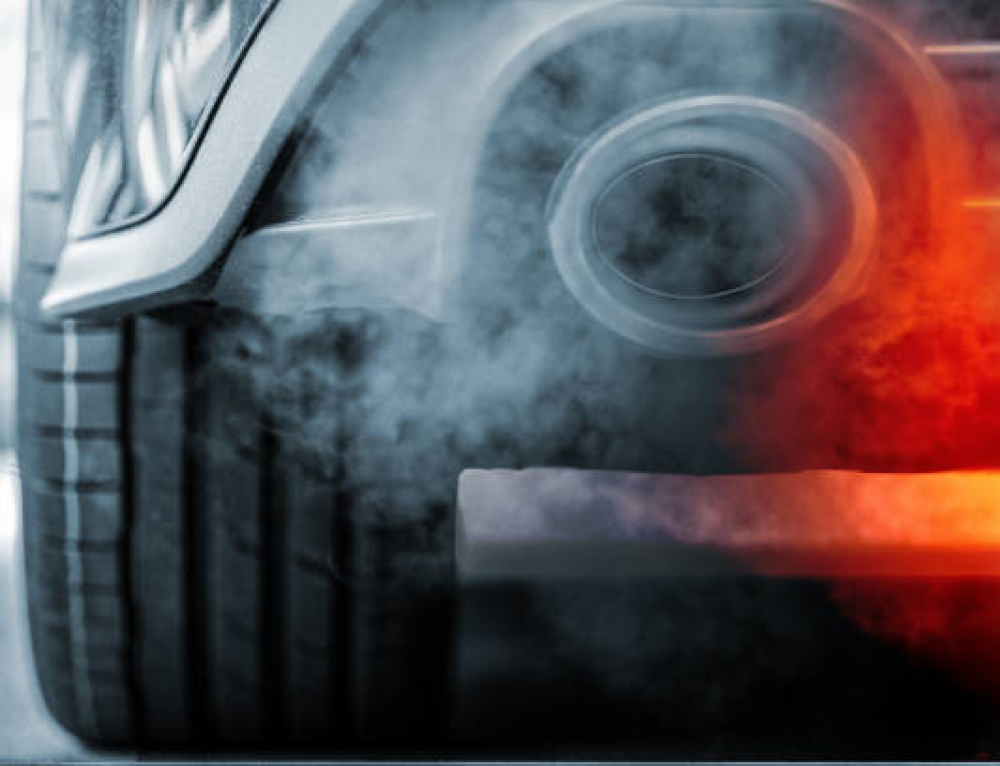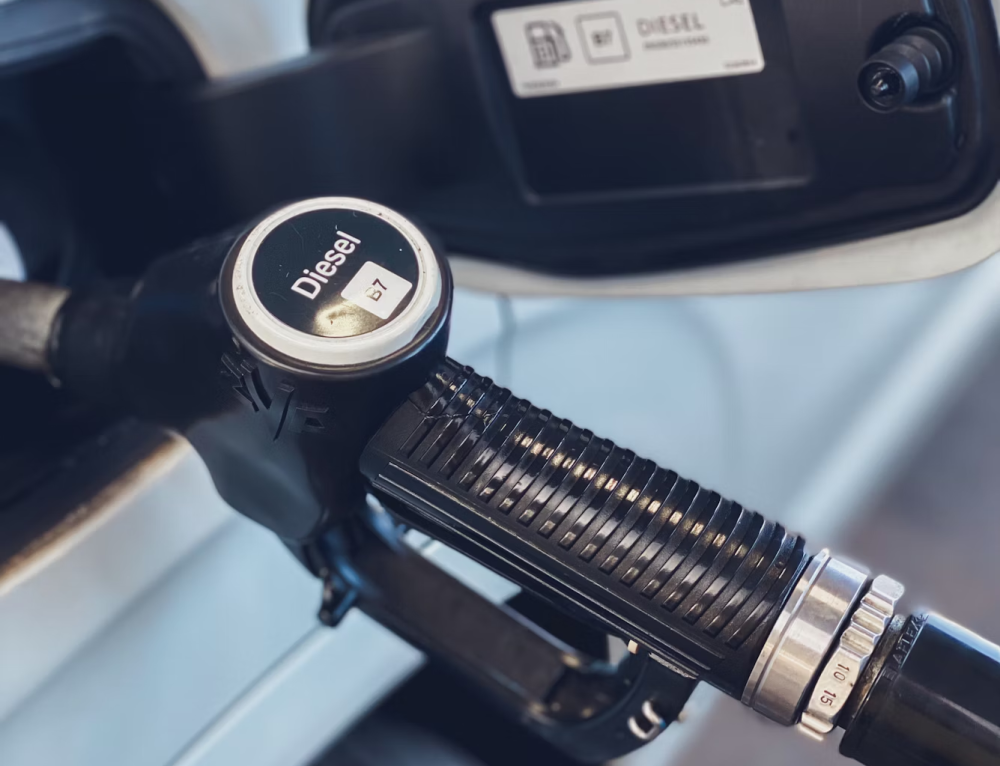Picture yourself driving your reliable diesel pick-up on the freeway, whether you’re towing a cargo or simply out for a ride. All of a sudden your engine stalls, power drops, and you are left on the side of the road. The culprit? Bad diesel fuel. It is a familiar story that has become all too common at Phoenix Diesel Repair. The quality of diesel fuel plays a crucial role in the performance of your vehicle. Knowing the diesel fuel quality you are putting in your tank is essential, as it directly affects fuel efficiency, fuel economy, and the long-term durability of your engine.
Not all diesel is the same. Diesel fuel quality plays a crucial role in determining engine performance. Factors such as Cetane number (which determines ignition quality), Sulfur content (which leads to emissions and possible engine damage), and contaminants like water, particulates, and microbes also have an impact on your diesel vehicle’s health. Unfortunately, this means that the use of low-quality fuel results in expensive repairs, poor fuel consumption, and even total breakdowns of the engine.
In this comprehensive guide, we’ll break down everything you need to know about diesel fuel quality. You’ll learn:
- The key components of diesel fuel and how they affect your engine
- The negative effects of poor-quality diesel on your fuel system, from the fuel pump and injectors to the fuel filter, can be severe. Diesel fuel quality plays a crucial role in ensuring the smooth operation of these components. Low-quality diesel may cause clogging, corrosion, or premature wear, leading to costly repairs and reduced engine performance.
- How contaminants like water, sludge, and microbes can wreak havoc on your engine and shorten its life
- The importance of choosing the right fuel, considering factors like cetane rating and sulfur content
- Best practices for fuel storage and handling to prevent contamination and maintain fuel quality
- How Phoenix Diesel Repair can help you with fuel testing, system maintenance, and expert advice
What Makes Diesel Fuel “Good”?
A few key factors determine the quality of diesel fuel:
- Cetane Number (CN)
This is similar to the octane rating of gasoline. It determines the ease at which the fuel will ignite. A higher cetane number simply means the ignition of the fuel is quicker, which is a critical aspect of diesel fuel quality, especially in cold climates and overall engine performance.
- Sulfur Content
Sulfur is present in crude oil as a contaminant, but it is quite damaging to the engine as well as the environment. Sulfur can result in higher emissions, foul your fuel system, including expensive fuel injectors, and even wear the life out of your engine. Fortunately, the EPA has some standards in terms of the level of sulfur in diesel fuel and while it was a very big problem in the past, it is not much of a problem nowadays.
- Lubricity
Diesel fuel must be slippery to reduce the friction of the moving parts of your fuel system. If it is not, then you might see your fuel pump and injectors wearing out earlier than they should.
- Additives
These are like the hidden gems of diesel fuel. They can enhance cetane number, lubricity, and fuel stability, and can also act as inhibitors against the formation of sludge deposits, which can block your fuel filter and fuel line.
The Consequences of Poor Diesel Fuel Quality
Well, that is all about the general information on diesel fuel quality. But what happens when things go wrong? What if the diesel in your tank is not of the best quality? Now let’s look at the less pleasant effects of bad diesel fuel.
Contaminants
- Water
This is the main party crasher. It can enter through the condensation in your fuel storage tank especially if you are in a region with high humidity. Wet fuel is bad news because it will reduce horsepower and can cause microbial growth (more on that later). It can also freeze in very cold conditions, blocking the fuel lines and filters.
- Particulates
These tiny particles, similar to rust and dirt, will gradually wear down your engine’s moving parts, particularly the sensitive fuel injectors. If left alone, they can accumulate and cause all kinds of issues ranging from blocked filters to low fuel economy.
- Microbial Life
Yes, it is true that microbes can also travel in the fuel tank of a car. These small creatures are aquatic, feed on diesel, and are known to produce a slimy substance referred to as sludge. This sludge can clog your filters, starve your engine of usable fuel, and even damage your fuel pump and injectors.
Short-Term and Long-Term Impacts
The consequences of these contaminants are not immediately noticeable, but they will get you in the long run. In the short term, you might see that your diesel engine does not run as smoothly as it once did. You might experience:
- Reduced fuel economy
- Sluggish acceleration
- Difficulty starting, especially in cold weather
- Increased smoke from the exhaust
But the actual harm is done in the long run. Poor diesel fuel quality can cause mechanical wear and tear on your engine’s internal components, which may necessitate expensive repairs or replacement of the engine. Imagine needing a new set of fuel injectors or even a new engine just because of bad fuel.
How to Choose the Right Diesel Fuel
The Cetane Content
Do you recall the discussion we had about cetane numbers? This is a big one when selecting your fuel. A higher cetane number means that your diesel fuel quality will improve, allowing it to ignite more easily. This, in turn, results in smoother starts, especially during chilly periods.
Sulfur
Another important consideration is sulfur content. Less sulfur equals less of the bad stuff and a more content engine in the long run. In some states, while there are regulations that state that the sulfur content should not exceed 50 ppm, there are some fuels that contain even lesser amounts of it. Be on the lookout for those!
Additives
There are few things that are more beneficial to your engine than fuel additives. It can increase cetane number, enhance lubricity, and it can also prevent water contamination. However, do not overdo it – the use of additives can be problematic if one uses the wrong type or too much of it. However, a quality additive as suggested by Phoenix Diesel Repair can work wonders in preventing damage and even enhancing fuel efficiency.
Choosing a Fuel Retailer
Selecting where to purchase your diesel is as important as selecting the correct fuel to use in the vehicle. Choose fuel stations that have a good reputation in terms of the quality of fuel they supply. If you see that the pumps are dirty or the area where the fuel is stored looks rather unsanitary, it is best to move on. As you know, clean fuel begins with clean storage!
Tips to Make the Right Choice
- Read the labels: Many pumps will have labels showing the cetane number and other characteristics.
- Ask questions: Do not hesitate to question the station attendant about the quality of their fuel or how they store it. A reputable station should not have anything to hide and should be able to answer your questions.
- Consider your needs: Are you driving in extreme temperatures? Do you often transport large loads in your vehicle? Your answers to these questions will assist you in identifying the most suitable fuel for your car.
And That’s It!
Choosing the right diesel fuel is like choosing the right food for your body. You want the good stuff that will nourish and protect, not the junk that will leave you feeling sluggish and unhealthy. Diesel fuel quality plays a crucial role in keeping your engine running smoothly. So, be picky about what you put in your tank. Invest in high-quality diesel, use the right additives, and maintain your fuel system with care.
If you ever have any questions or concerns about your diesel fuel, don’t hesitate to reach out to us at Phoenix Diesel Repair. We’re your trusted partner in all things diesel, and we’re always happy to help you keep your engine running smoothly for miles to come. Happy driving!
Frequently Asked Questions
How does the cetane number affect diesel fuel quality?
The cetane number measures how easily diesel fuel ignites. A higher cetane number indicates quicker ignition, leading to smoother engine starts, especially in cold weather, and improved overall engine performance. It is a key factor in determining diesel fuel quality.
What are the consequences of poor diesel fuel quality?
Poor diesel fuel quality can lead to clogged fuel filters, damaged injectors, corrosion in the fuel system, and reduced engine efficiency. Contaminants like water, dirt, and microbes can cause significant wear and tear on engine components, resulting in costly repairs and reduced engine lifespan.
How does sulfur content impact diesel fuel quality?
High sulfur content in diesel fuel can damage engine components and increase harmful emissions. It can also clog fuel injectors and degrade engine performance. Modern regulations limit sulfur levels in diesel, but lower sulfur content is always preferable for maintaining high diesel fuel quality.
How can water contamination affect diesel fuel quality?
Water in diesel fuel can cause microbial growth, which produces sludge that clogs fuel filters and injectors. Water contamination can also freeze in cold temperatures, blocking fuel lines and causing starting issues. Proper fuel storage and regular fuel testing are essential to maintain high diesel fuel quality.
What additives can improve diesel fuel quality?
Additives can enhance the cetane number, lubricity, and stability of diesel fuel, preventing issues like sludge buildup and water contamination. They help ensure smoother engine operation, better fuel economy, and a longer engine lifespan. However, it’s important to use the right additives in appropriate amounts to avoid damaging your engine.




